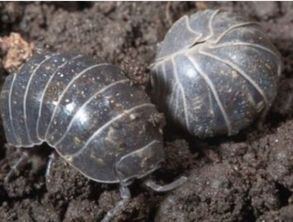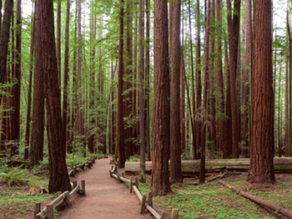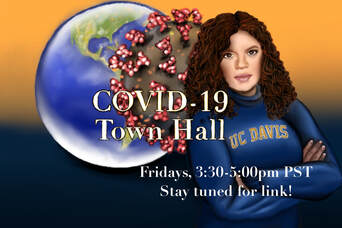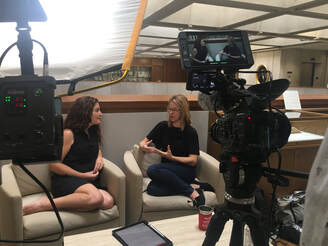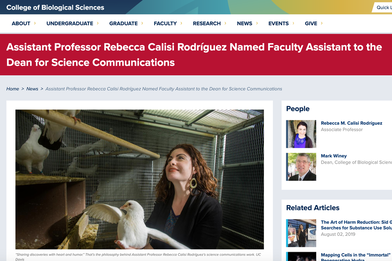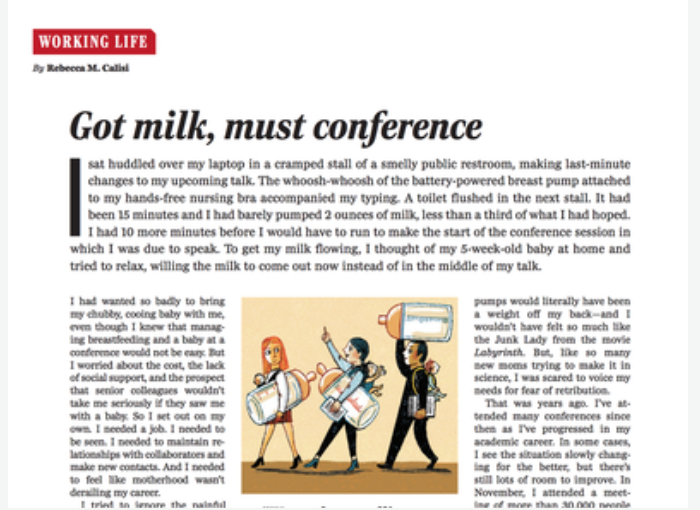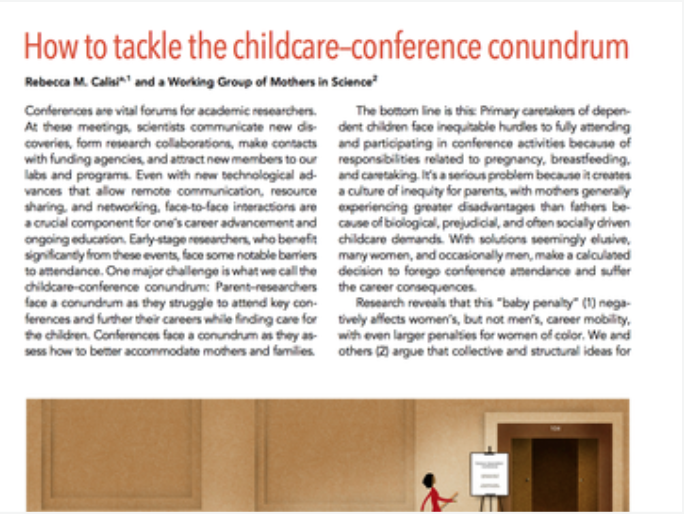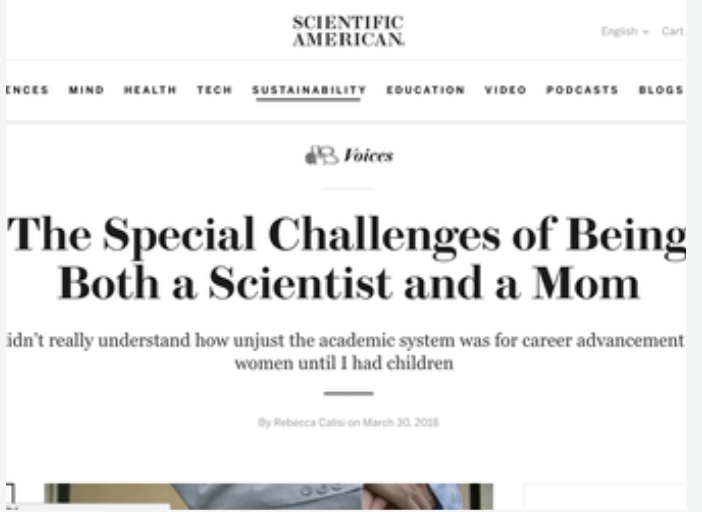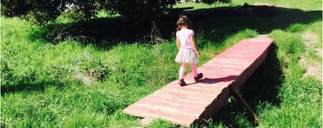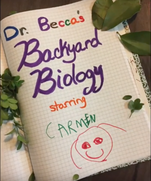Banter: Science Communication & Outreach
The third "B" of the B3 Lab stands for "Banter," named for our playful and approachable style of science communication.
|
In light of the COVID-19 Pandemic, the B3 Lab recently collaborated with the College of Biological Sciences at UC Davis on organizing a series of virtual Town Halls for students that are also open to the public. Physicians, scientists, lawyers, journalists and economists answered questions from our students about the scientific, health care and broader societal issues surrounding the COVID-19 pandemic in real time! All Town Halls were recorded and can be viewed cc in English (click here) or Spanish (click here), along with written transcripts in each language.
|
Official Program Launch
Beginning Fall, 2019, the B3 Lab officially launched a research program in the study and practice of Science Communication, with an emphasis in supporting diversity, equity, and inclusion in STEM. Our goal is to test and assess novel ways of communicating science 1) with diverse communities, and 2) between scientists of varying scientific disciplines and backgrounds, to foster understanding, collaboration, and discovery.
|
Why is this a Crucial Time for Communicating Science?
Communication of scientific knowledge and discovery is vital to the health and well-being of our society and planet. Current public misunderstanding and mistrust of science and scientists has generated a voting public that is skeptical of climate change, opposed to vaccines, and scientifically illiterate. Perceived economic interests, disengagement, arrogance, white privilege and fragility have negatively impacted scientists, their work and research funding, public interest and engagement. In this socially unjust climate filled with "fake news" and fear mongering, now is a crucial time to support the innovation of science communication practice.
|
Opportunities in the B3 Lab
The B3 Lab is currently seeking undergraduate students, graduate students, and postdoctoral fellows interested in significantly integrating their scientific research with investigations of assessment and best practices of science communication. Specifically, the B3 Lab is looking for those passionate about 1) practicing and assessing the impact of culturally relevant storytelling to educate, inspire, and engage with diverse public communities, and 2) innovating science communication and its assessment to help create and maintain scientific communities to promote interdisciplinary collaboration and discovery. Currently, our communication efforts are funded by the National Science Foundation, National Geographic, the Gordon and Betty Moore Foundation, and the Office of the Dean in the College of Biological Sciences at UC Davis. For more information, please contact Dr. Calisi at [email protected].
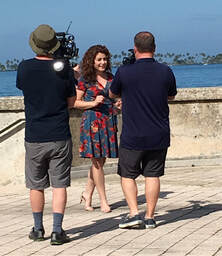 Filming with UC Davis Director of Visual Communications, John Mounier, and Tim McConville Filming with UC Davis Director of Visual Communications, John Mounier, and Tim McConville
Dr. Calisi Rodríguez, Science Communicator
The head of the B3 Lab, Dr. Rebecca Calisi Rodríguez, draws upon her background as an artist, actor, research scientist, and professor to help scientists accurately and more effectively communicate their ideas and discoveries with each other, funding agencies, and the public. Recently, she was named as the Dean's first Faculty Advisor for Science Communication in the College of Biological Sciences at UC, Davis - a position created specifically for her. Inspired by her own personal experiences as a scientist and Mexican-American, Dr. Calisi's work reflects her dedication to accurately communicating discoveries, highlighting the valuable contributions of those from marginalized groups in STEM, and advocating for a more inclusive research and funding climate to ensure a better tomorrow. See examples of her work below. |
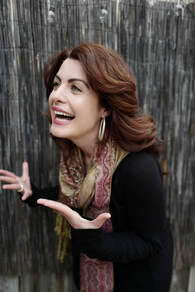
A Note from Dr. Calisi Rodriguez
"My full name is Rebecca M. Calisi Rodríguez. "Calisi" (pronounced "Ka-lee-see" ...yes, like that character from Game of Thrones..) comes from my Italian-American father, and "Rodríguez" comes from my Mexican-American mother. I grew up in Texas surrounded by my mother's amazing, dramatic, loving, charismatic family. When I set off for college, I brought the passion for life they instilled in me and used it to pursue a career in studio art and theater. However, an interesting turn of events involving a mural and a mystery at a zoo changed my path forever. Now, I'm a wildlife biologist, neuroscientist, and professor at my dream school, the University of California, Davis. I lead a research team that studies how genes and brains work to help animals reproduce, especially under stress. I understand many of the struggles and biases that underrepresented minorities face in the workplace. To this end, much of my work focuses on positive advocacy for these groups. I have approached topics directly, such as by writing about the difficulties of breastfeeding in the workplace, postpartum depression, and childcare, creating a video about supporting underrepresented minorities, and co-producing a video about the challenges working mothers in science face. I also approach these topics indirectly by including women and underrepresented minorities in my pieces, such as in my video about the importance of studying bird brains, my series of science videos for kids hosted by myself and my six year old Puerto Rican-Mexican-Italian daughter, and a (non-science) video I made for a small, local business run by a Guatemalan- and Mexican-American couple. I use my passion and humor to make science more inclusive, culturally relative, and accessible to a broader audience. I find so much joy in getting to know the people behind the science to help them share their discoveries with heart and humor." |
|
Selected Works
|
|
Supporting Parents in STEM
"I didn’t really understand how unjust the academic system was for career advancement until I had children. Despite a mountain of research findings emphasizing the importance of supporting physical and mental health for both mother/caregiver and child, policies to support mothers/caregivers during this time—or lack thereof—are illogical and shortsighted. I am determined to help close the gender gap and make things better for parents who science. And I'm just getting started. " - Dr. Rebecca Calisi Rodríguez
Publications
A selection of articles authored by Dr. Calisi Rodríguez in 2018 in Science, Proceedings of the National Academy of Sciences, and Scientific American advocating for better support for scientific conference attendees caring for young children. Her work from PNAS has been viewed almost 100,000 times since its publication, and its positive impact can be felt throughout academic meetings and academic culture in general.
Videos
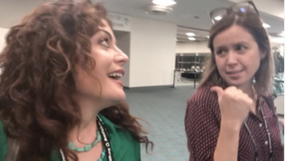
Breastfeeding & Childcare Resources: Did SfN Deliver?
In 2017, Rebecca called out the Society for Neuroscience on their lack of adequate resources to support parents, particularly breastfeeding mothers, at their annual meeting. They promised to improve their resources at their meeting in 2018. Rebecca and a few of her mother-in-neuroscience colleagues investigate.
In 2017, Rebecca called out the Society for Neuroscience on their lack of adequate resources to support parents, particularly breastfeeding mothers, at their annual meeting. They promised to improve their resources at their meeting in 2018. Rebecca and a few of her mother-in-neuroscience colleagues investigate.
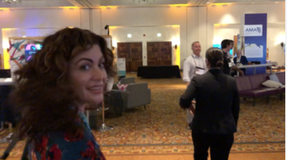
Breastfeeding support at TEDMED?
Yup! They had it! While attending TEDMED 2018, Rebecca checked out what kind of support they offered breastfeeding parents.
Yup! They had it! While attending TEDMED 2018, Rebecca checked out what kind of support they offered breastfeeding parents.
|
|
Promoting Interdisciplinary Collaborations
"In order to solve some of the biggest problems we face today, scientists from seemingly disparate fields must come together to collaborate. However, we don't always speak the same (scientific) language. For example, an avian neurogenomicist, like yours truly, has relatively little or no training in oncology. However, the tools my lab is developing to analyze large genomic datasets in bird models have the potential to offer new insight into supporting cancer prevention, diagnosis, and treatment. Thus, facilitating communication between our fields not only increases that rate at which discoveries can be made, but how many lives can be saved. " - Dr. Rebecca Calisi Rodríguez
The Data Commons Project
Storing, managing, standardizing and publishing the vast amounts of data produced by biomedical research is a critical mission for the National Institutes of Health. In support of this effort, in 2018 the National Institutes of Health (NIH) funded over 200 researchers from various fields to come together to pilot the creation of a roadmap for modernizing the NIH-funded biomedical data science ecosystem. They called this collaboration the Data Commons Pilot Phase Consortium (DCPPC). Dr. Calisi Rodríguez was brought on as a collaborator to help facilitate communication between research groups by using and sharing video interviews. Below are selected videos offering examples of the Consortium's journey to build and implement the cloud-based platform that promises to significantly increase the rate of biomedical discoveries.
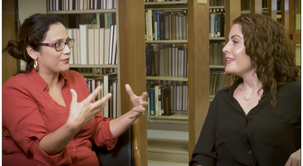
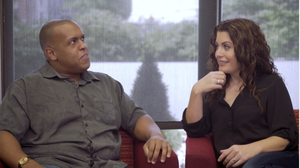
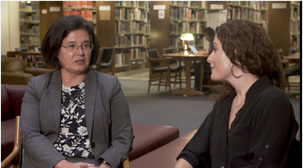
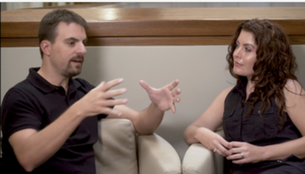
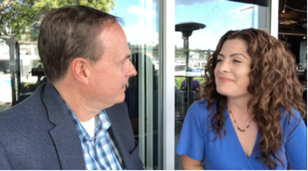
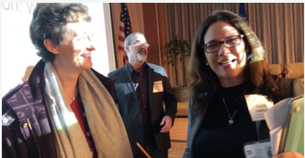
|
|
Demystifying Science & Scientists
Being a scientist doesn't mean you have choose between a life and a lab. We sing, we dance, we have families, we tell bad jokes, and we have a good time! Goodbye to images of boring stiffs in lab coats. Meet the real people behind the science and see how you can be a scientist too!
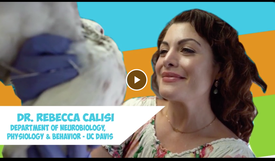
I CAN SCIENCE
I CAN SCIENCE is a digital series created and hosted by Dr. Rebecca Calisi Rodríguez to highlight the work of scientists from marginalized or underrepresented groups in the United States. Our first series covers scientists in Puerto Rico and their stories of resilience bot in their work and post hurricanes Irma and Maria.
Directed by John Mounier, filmed by Tim McConville, funded by National Geographic.
I CAN SCIENCE is a digital series created and hosted by Dr. Rebecca Calisi Rodríguez to highlight the work of scientists from marginalized or underrepresented groups in the United States. Our first series covers scientists in Puerto Rico and their stories of resilience bot in their work and post hurricanes Irma and Maria.
Directed by John Mounier, filmed by Tim McConville, funded by National Geographic.
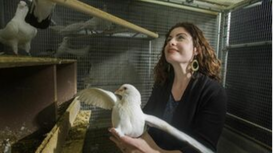
Studying Bird Brains - Not Such a Bird-Brained Idea!
Sometimes scientists seem to study totally random things. For example, bird brains. What good is studying bird brains? Does this type of research even help people? Watch and find out!
Sometimes scientists seem to study totally random things. For example, bird brains. What good is studying bird brains? Does this type of research even help people? Watch and find out!
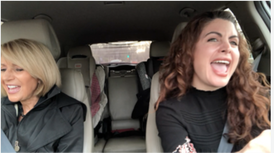
Cracking Marsha McNutt!
The President of the National Academy of Sciences visits UC Davis. Rebecca chats up the mama of three who blows things up with Navy Seals, barrel races, and rides motorcycles.
The President of the National Academy of Sciences visits UC Davis. Rebecca chats up the mama of three who blows things up with Navy Seals, barrel races, and rides motorcycles.
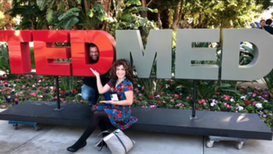
Demystifying TEDMED Talks with Jonathan Eisen
Join Rebecca and former TEDMED speaker Jonathan Eisen as they reveal what goes on behind the scenes of TEDMED 2018 and the making of these online viral sensation talks.
Join Rebecca and former TEDMED speaker Jonathan Eisen as they reveal what goes on behind the scenes of TEDMED 2018 and the making of these online viral sensation talks.
|
Inspiring Tomorrow's Scientists
|
|
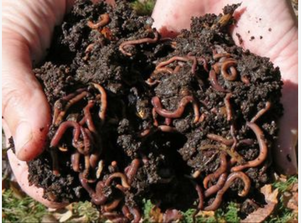
Earthworms!
Did you know plants love earthworm poop?
Did you know plants love earthworm poop?
